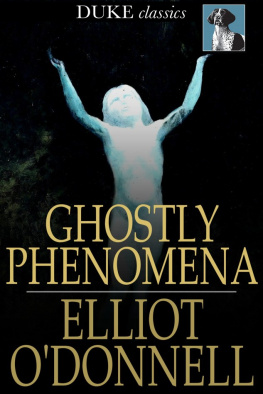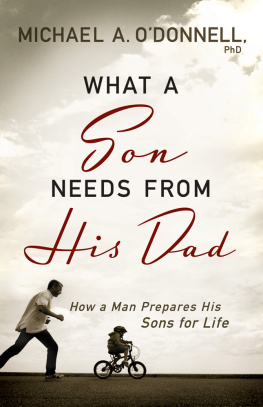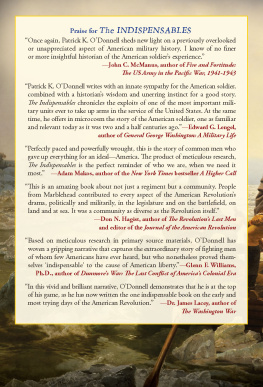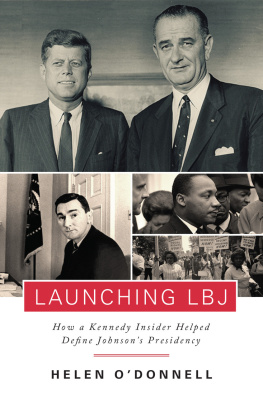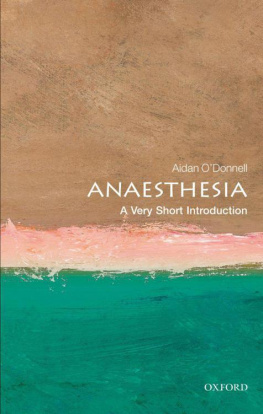
General Editor:
Patrick McNeill
SOCIETY
NOW
Age and Generation
Mike ODonnell
AGE AND GENERATION

Tavistock PublicationsLondonNew York
To Dylan: From His Old Man
First published in 1985 by
Tavistock Publications Ltd
11 New Fetter Lane,
London EC4P 4EE
This edition published in the Taylor & Francis e-Library, 2006.
To purchase your own copy of this or any of Taylor & Francis or Routledges collection of thousands of eBooks please go to www.eBookstore.tandf.co.uk.
Published in the USA by
Tavistock Publications
in association with Methuen, Inc.
733 Third Avenue,
New York, NY 10017
1985 Mike ODonnell
All rights reserved. No part of this book may be reprinted or reproduced or utilized in any form or by any electronic, mechanical or other means, now known or hereafter invented, including photocopying and recording, or in any information storage or retrieval system, without permission in writing from the publishers.
British Library Cataloguing inPublication Data
ODonnell, Mike
Age and generation.(Society now) (Social science paperbacks; no. 301)
1. Age groupsSocial aspects I. Title II. Series III. Series
305.2 GN490.5
ISBN 0-203-13279-3 Master e-book ISBN
ISBN13: 978-0-203-13279-1 Master e-book ISBN
ISBN13: 978-1-135-80060-4 ePub ISBN
ISBN 0-422-79360-4
Contents
Acknowledgements
The author and publishers would like to thank the following for permission to reproduce copyright material: Routledge & Kegan Paul and Harcourt Brace Jovanovich, New York for reproduced from The Rampton Report, 1981, Cmnd 8273.
Preface
I would like to thank Caroline Riddell, Sandra den Hertog, and Joy Outten for typing the final manuscript of this book. They achieved deadlines with greater ease and patience than the author.
I have had this bookor something like itin my mind for some years but I am grateful to the series editor, Patrick McNeill, for prompting me to write it. He also provided the necessary second pair of eyes to help me assess my work as it was being produced. Patricia Mayes, too, commented helpfully on the early chapters.
My students responded constructively to much of the following material. However, I need to acknowledge their influence on more than one account. I have written the sections on youth with an acute awareness of the difficulties and challenges facing them and their contemporaries.
Economic and educational policy and developments have changed the position of young people radically. A major aim of this book is to help them link these changes to their own situations and experiences. Only connect!
Mike ODonnell
1
Age and generation
Few would disagree with S.N.Eisenstadts comment that Age and differences of age are among the most basic and crucial aspects of human life and determinants of human destiny (Eisenstadt 1956). In everyday life we are, perhaps, as conscious of age differences as we are of those of class or gender. The latter we may take for granted, but ageing is a continuous process the consequences of which keep confronting us. Despite its obvious importance, age has not been explored by sociologists as thoroughly as might be expected.
The sociology of age is about the experience and treatment of age groups in society. The concept of age group is the broadest term used to refer to an aggregate of people differentiated from others according to age. Sociologists accept the biological reality of age and concentrate on how it is socially structured. As we shall see, age groupschildren, the young, the oldare treated differently in different societies. The comparative aspect of the sociology of age is essential in establishing the role of culture in age stratification. For instance, comparative analysis shows that it is not biologically inevitable that the old should have little power and prestige, as they do in many areas of western societies. Why this is so is an interesting sociological question.
Despite their primary interest in the social sphere, sociologists generally recognize that age groups are a product of the interaction of biological and social factors. Karl Mannheims remark on the concept of generation applies to age in general: The sociological phenomenon of generations is ultimately based on the biological rhythm of birth and death (Mannheim 1952). Biology sets certain general limits to behaviour. Thus leading warriors or athletes are seldom, if ever, recruited from the very old or the very young in any society. I will present Mannheims own model of the relationship between biology and age shortly.
A generation is a form of age group. Tavistocks A Dictionary of the Social Sciences provides us with a definition of the broadest usage of the term: A generation comprises all those members of a society who were born approximately at the same time, whether or not they are related by blood. Generation is also used to refer to the period between those born at the same time and the birth of their children, usually assumed by social scientists to be about thirty years.
Mannheim (18931947) distinguishes between generation as location and generation as actuality. The former means the same as the broadest usage of the termto coexist or be located with others of the same age. A generation as an actuality shares a community of experience and feeling. Mannheim published his analysis of generation in the 1920s, but it is possible to give a modern example of what he means. The almost universal emotional involvement of American youth in the Vietnam War provides a modern example of an actual generational experience. Mannheim points out that such experiences tend to occur at a very general level. He introduced the concept of generation unit to provide more specific analysis. Generational units share an identity of responses and views about events. Thus there were various pro- and anti-war units within the Vietnam War generation. Mannheim (1952) puts the difference between a generational unit and an actual generation as follows:
The generation unit represents a much more concrete bond than the actual generation as such. Youth experiencing the same concrete historical problems may be said to be part of the same actual generation, while those groups within the same actual generation which work up the material of their common experience in different specific ways constitute separate generation units.
Age groups in simple societies
The purpose of this section is to illustrate some of the differences and similarities in age groupings in simple and modern societies. It is not a representative overview of age in simple societies.
The age-grade system which occurs in some simple societies provides a contrast with the less formal structuring of age common in modern societies, yet in Eisenstadts view it fulfils the same functionto maintain social solidarity. According to A.R.Radcliffe-Brown (1952), an age grade is the recognized division of the life of the individual as he passes from infancy to old age. Thus male aborigines pass through the age grades of hunter, warrior, and elder. Each of these age divisions or grades involves certain duties and rights, and a degree of prestige in relation to other grades. The exact age span and activities of age grades vary between societies, but wherever they occur there is a point at which the young person acquires full adult status. This occasion is always marked by an initiation ritual or rite of passage, although these rites also occur in certain non-age-grade simple societies. An age set denotes the group of persons initiated during the same period within a given age-grade system. The age set advances together through the age-grade system. Ceremonies relating to major transitions in life, such as birth, the coming of age, marriage, and death, are of central and sacred significance in simple societies.




